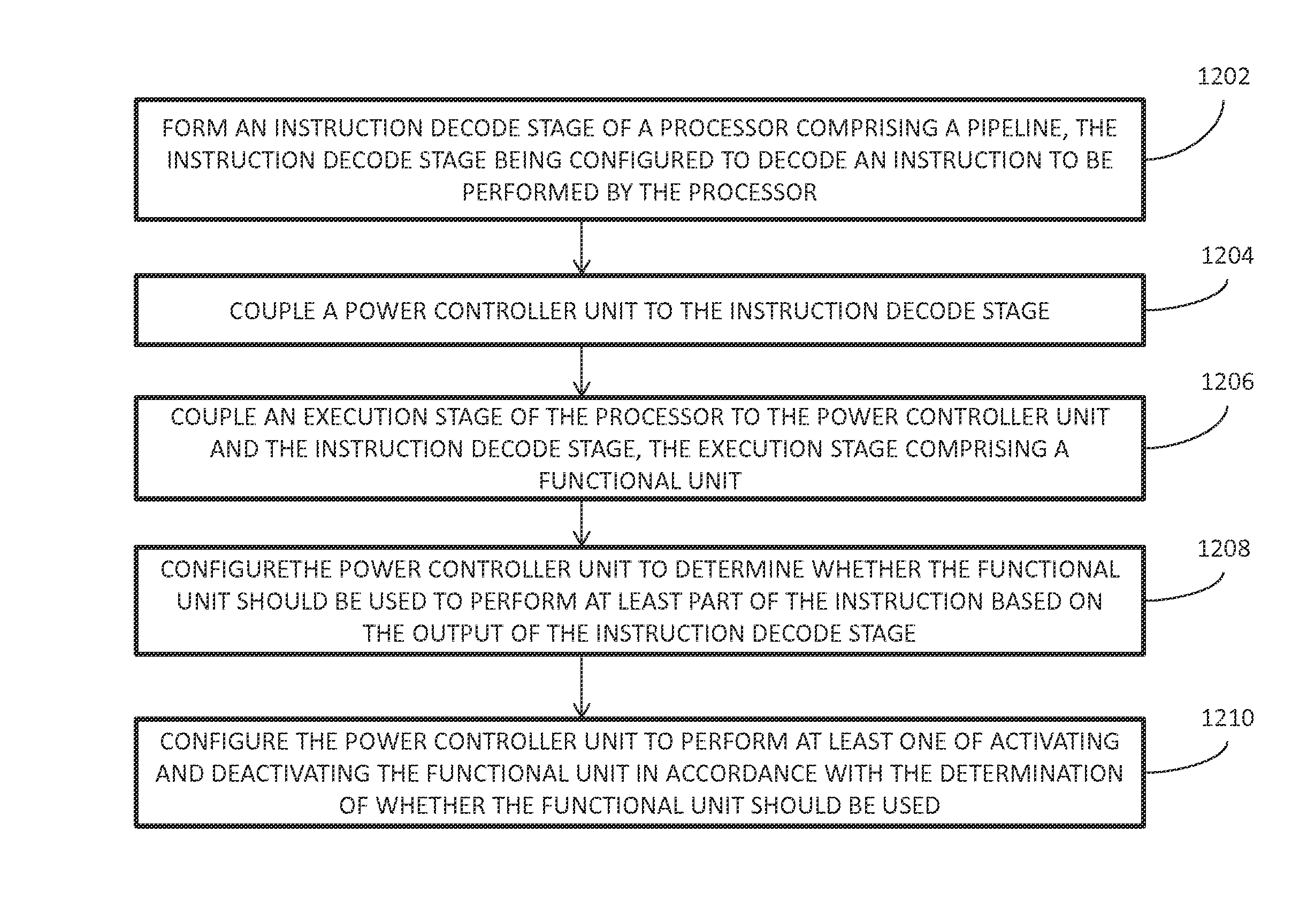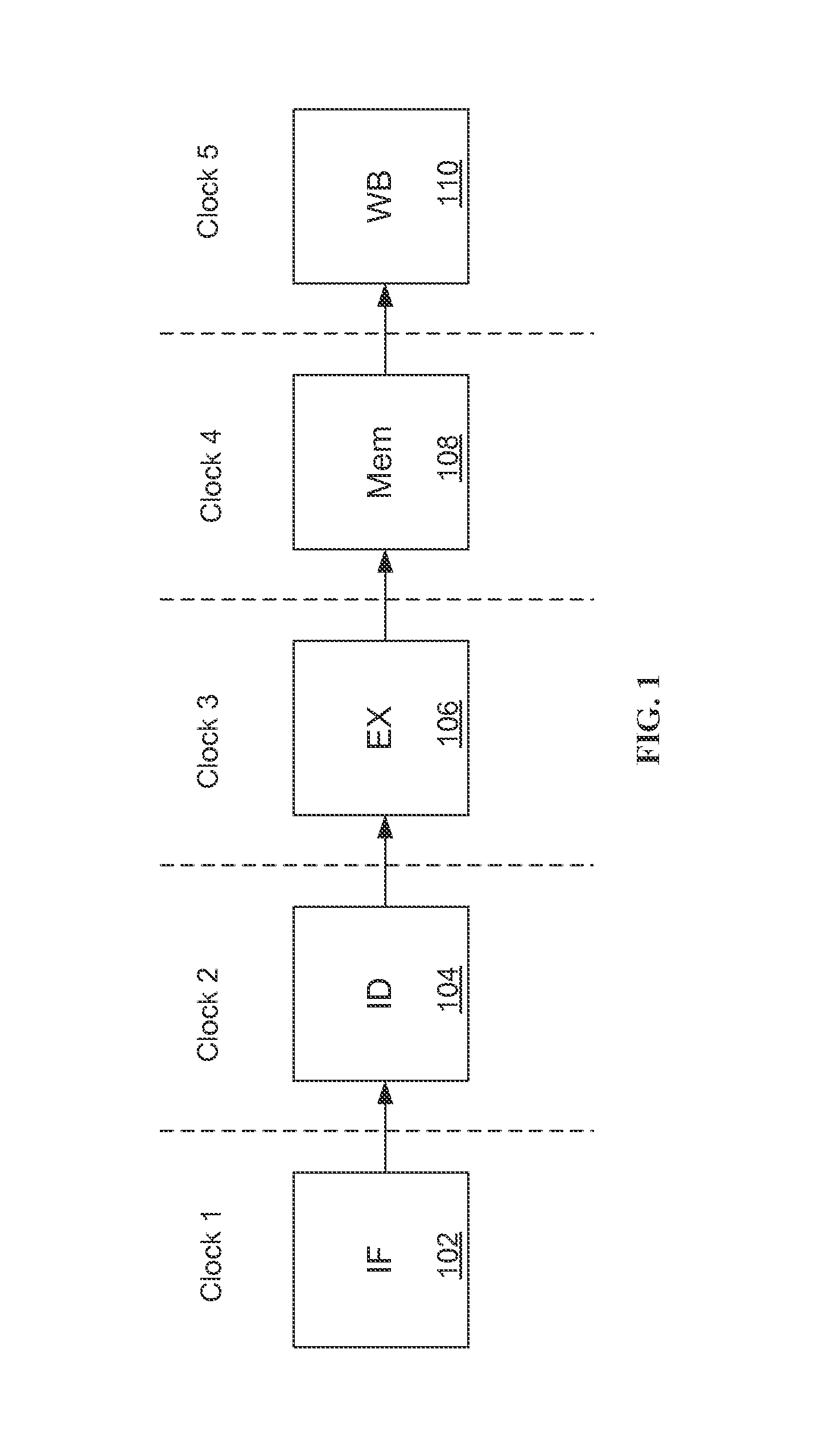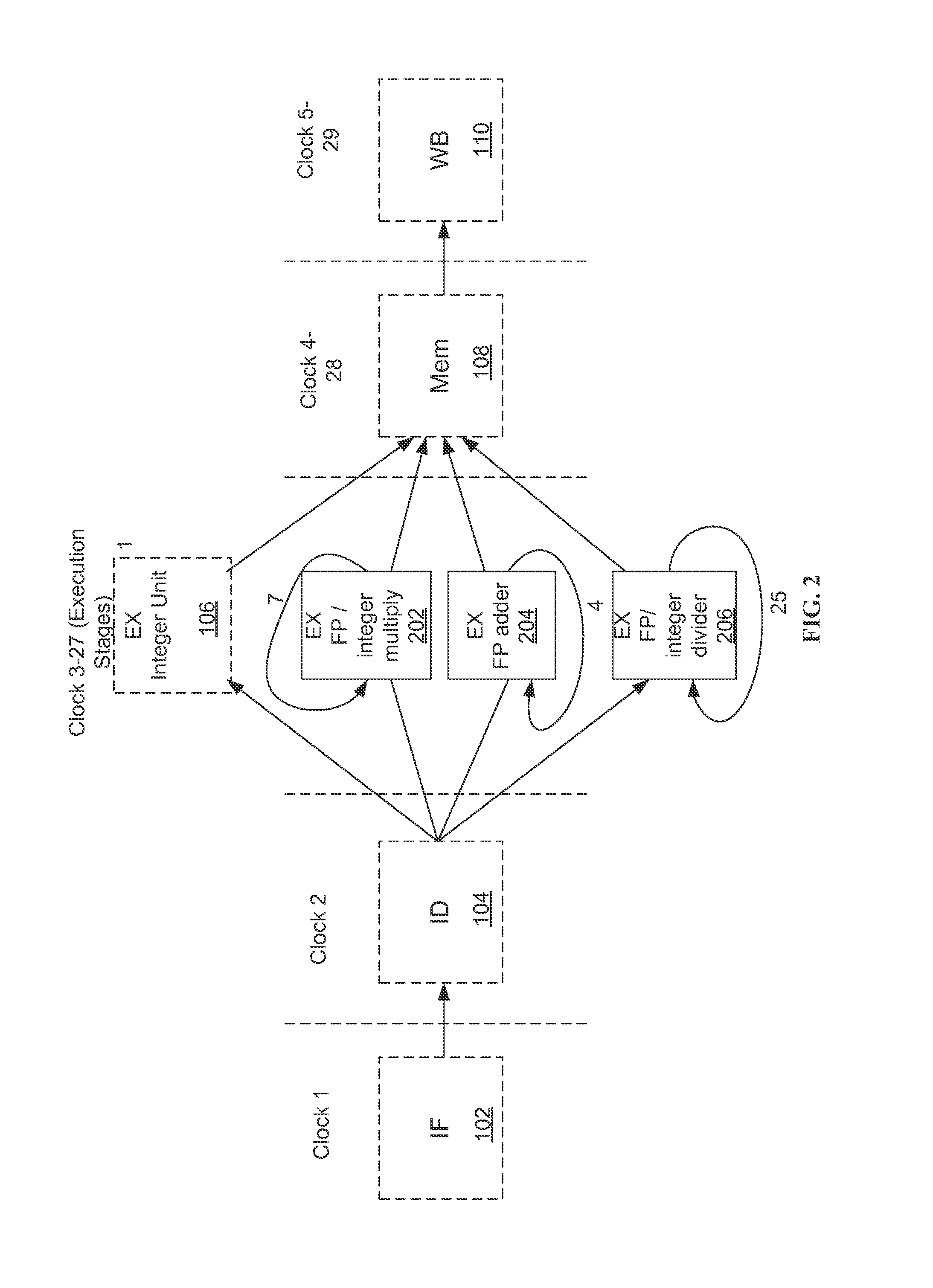Autonomous microprocessor re-configurability via power gating execution units using instruction decoding
a microprocessor and instruction decoding technology, applied in the direction of instruments, power supply for data processing, climate sustainability, etc., can solve the problems of useless microprocessors, achieve the effect of reducing or eliminating the power penalties associated with over-designing the architecture for rare instruction cases, and reducing dynamic and static power dissipation
- Summary
- Abstract
- Description
- Claims
- Application Information
AI Technical Summary
Benefits of technology
Problems solved by technology
Method used
Image
Examples
Embodiment Construction
[0025]Many types of processor architectures currently exist and thus the details of the implementations can differ. However, the concept of power gating functional units (“FUs”) within a processor's pipeline may be applied to any processor architecture that uses an instruction decoder and execution units, or a pipelined implementation. In a preferred embodiment, the system identifies which FUs within the execution stages of clocks 3-27 in FIG. 2 and FIG. 3, are going to be needed for a particular instruction. Once this is known, the power controller unit 412 which is shown in greater detail in FIG. 9 will apply power to the FU right before the instruction is issued to it, thus, eliminating static and dynamic power dissipation during idle periods.
[0026]The concept of pipelining was introduced commercially around the 1980's as a way to exploit instruction level parallelism with the execution of a sequential program. Operations to be performed on the instructions are broken down into s...
PUM
 Login to View More
Login to View More Abstract
Description
Claims
Application Information
 Login to View More
Login to View More - R&D
- Intellectual Property
- Life Sciences
- Materials
- Tech Scout
- Unparalleled Data Quality
- Higher Quality Content
- 60% Fewer Hallucinations
Browse by: Latest US Patents, China's latest patents, Technical Efficacy Thesaurus, Application Domain, Technology Topic, Popular Technical Reports.
© 2025 PatSnap. All rights reserved.Legal|Privacy policy|Modern Slavery Act Transparency Statement|Sitemap|About US| Contact US: help@patsnap.com



